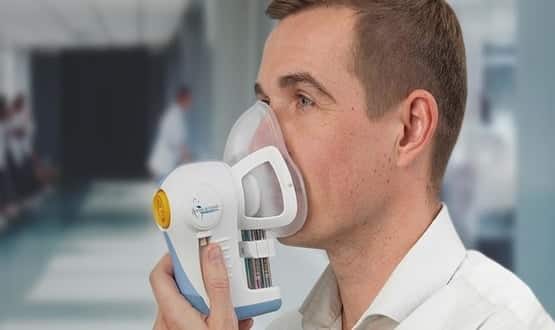A clinical trial, involving new technology which could detect cancer at an earlier stage, has been launched.
The Cancer Research UK Cambridge Centre is running the trial in collaboration with Owlstone Medical to test their Breath Biopsy technology.
Breath samples from around 1,500 people will be collected to see if odorous molecules called volatile organic compounds (VOCs) can be detected.
The clinical trial will start with patients with suspected oesophageal and stomach cancers and then expand to prostate, kidney, bladder, liver and pancreatic cancers in the coming months.
Patients from Addenbrooke’s Hospital in Cambridge who have been referred from their GP with these specific types of suspected cancer will be recruited to take part.
The will breathe into the test for 10 minutes to collect a sample, which will then be processed by Owlstone.
It is hoped the trial will help decipher if cancer signals are similar or different, and how early it’s possible to pick these signals up.
Some people will go on to be diagnosed with cancer, and their samples will be compared to those who don’t develop the disease.
If the technology proves to accurately identify cancer, the team hope that breath biopsies could in future be used in GP practices to determine whether to refer patients for further diagnostic tests.
Rebecca Fitzgerald, lead trial investigator at the Cancer Research UK Cambridge Centre, said: “We urgently need to develop new tools, like this breath test, which could help to detect and diagnose cancer earlier, giving patients the best chance of surviving their disease.
“Through this clinical trial we hope to find signatures in breath needed to detect cancers earlier – it’s the crucial next step in developing this technology. Owlstone Medical’s Breath Biopsy technology is the first to test across multiple cancer types, potentially paving the way for a universal breath test.”
The diagnosis of cancer, is becoming a big topic for the NHS.
In April 2018, it was announced rapid diagnostic and assessment centres for cancer are to be set up across England in a bid to catch and diagnose the disease more quickly.

